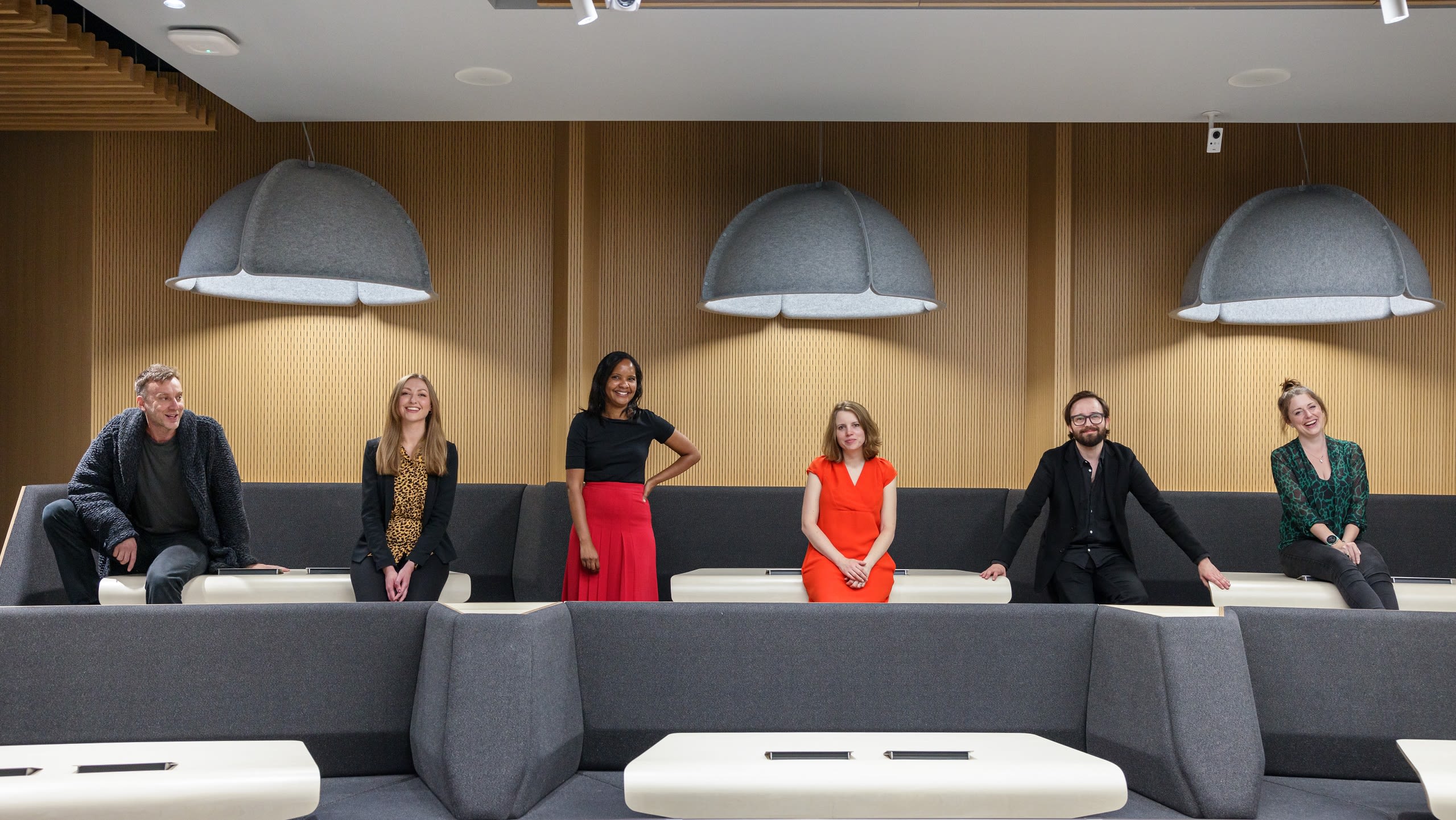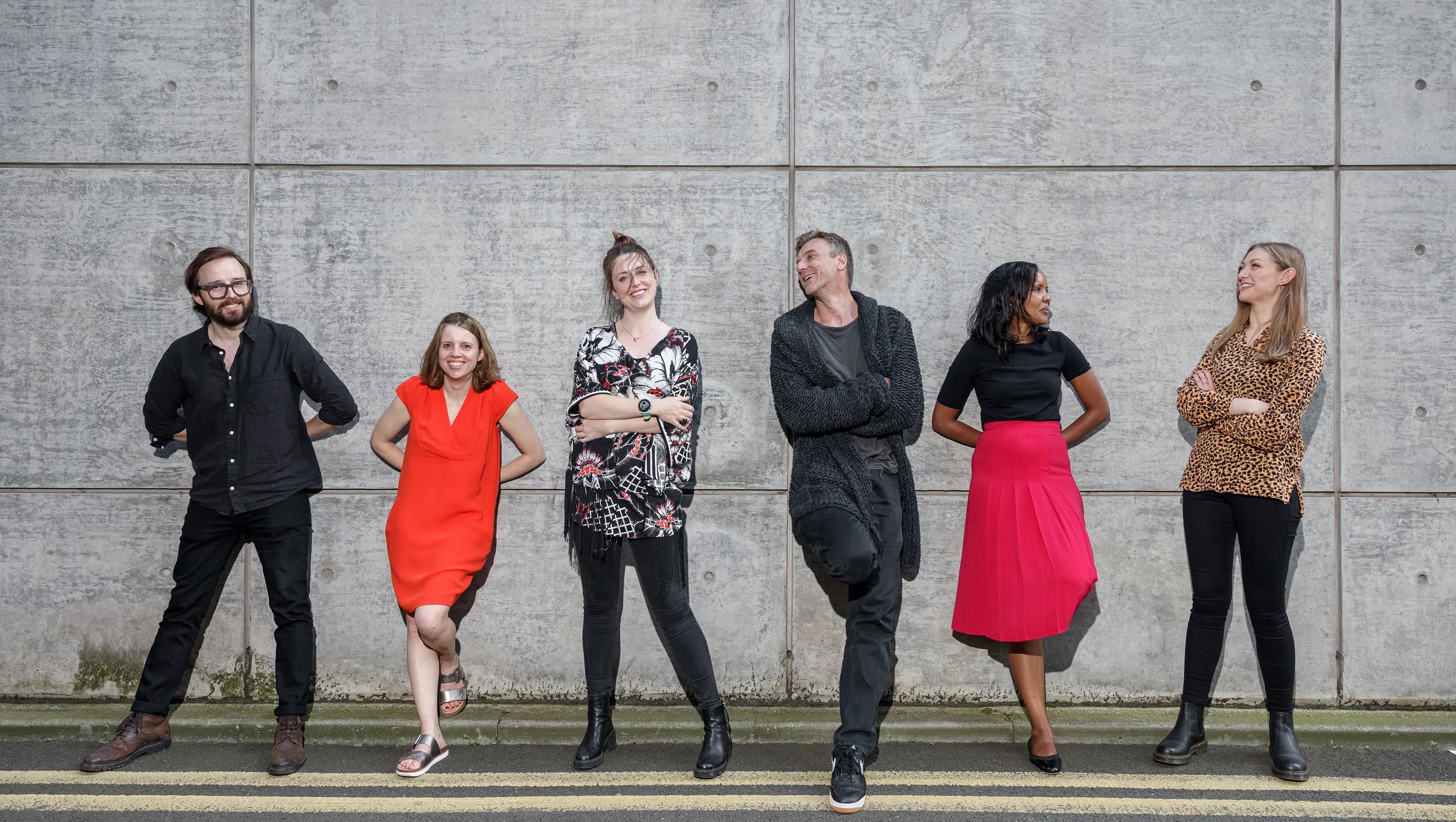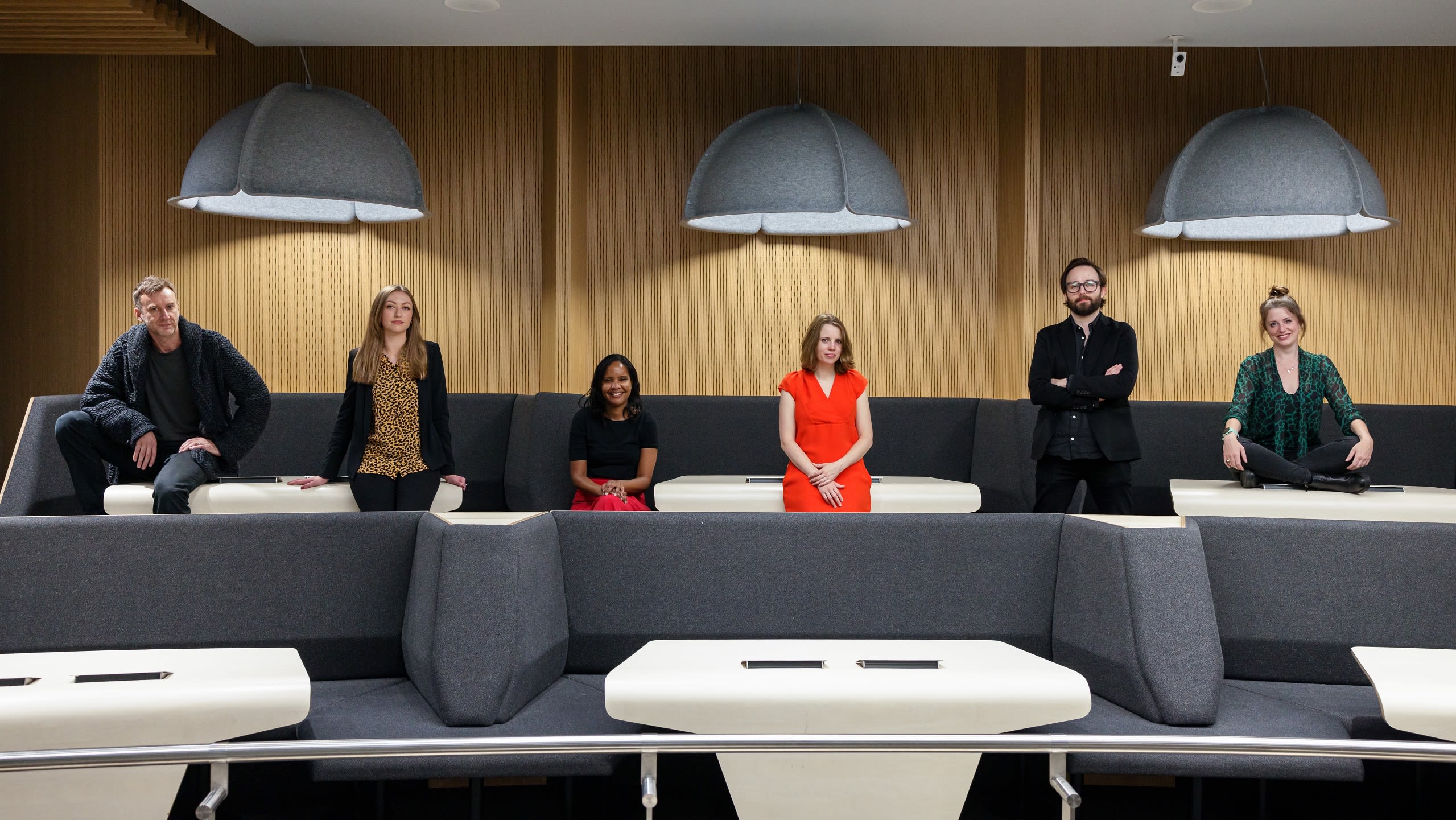Communicating COVID-19
#CelebratingEngagement
with Imperial College London's Communications team
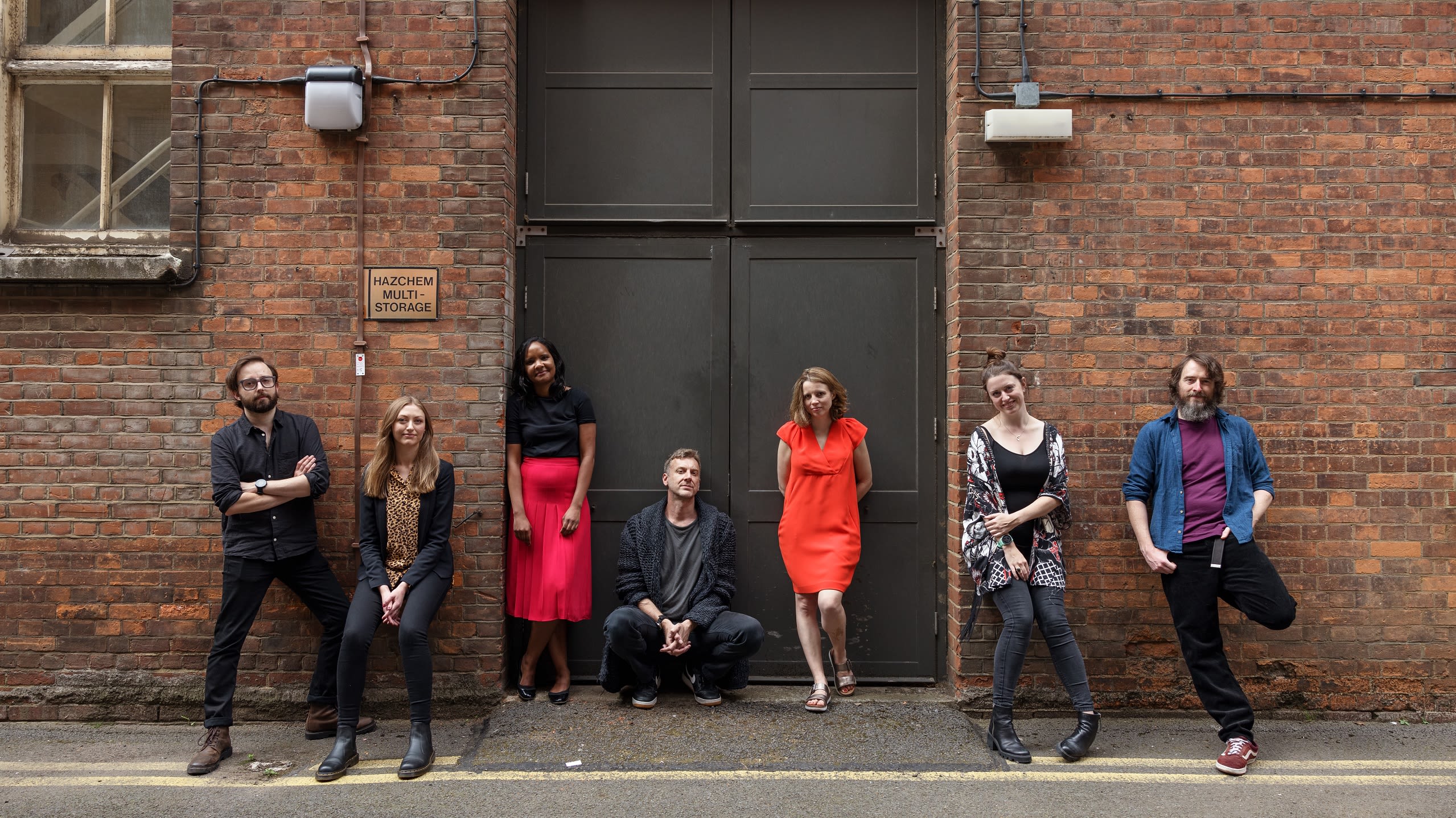
“One of my colleagues said it was like we were constantly playing Whack-A-Mole” says Laura Gallagher, reflecting on the intense pace of work her team faced as the pandemic unfolded in early 2020. “There was interesting and important new COVID-19 research popping up every day, so we were trying to keep on top of publicising that whilst at the same time handling hundreds of calls and emails from journalists wanting to talk to Imperial experts.”
Gallagher is the Head of News and Media for Research at Imperial. She leads a talented team of communicators and works closely with researchers and journalists to get Imperial’s research out into the world. She is one of a group of communications professionals from across the College who have been central to communicating Imperial’s COVID-19 research. Beyond raising the profile of Imperial’s research, their work has contributed to life-saving behaviour and policy change globally – and has resulted in a President’s Award for Achievement in Societal Engagement. As the COVID-19 storm abates and the team have a chance to look back at this unique period in history, how do they remember it?
“As much as it was frantically busy and as much as we wished the pandemic would end, I think we all felt privileged to be working with these super smart, dedicated academics. They were all working flat out and achieving some incredible things, and we were glad we could do something to support the vital work they were doing.”
So how did a typical day unfold for Imperial communications during COVID-19? Maxine Myers manages communications for the Imperial College Academic Health Science Centre, a partnership between the College and a number of NHS Trusts.
“I worked with my NHS colleagues to support their communications during the height of the pandemic where ICU wards were busy. A lot of the focus was on operational communications such as PPE guidance, daily bulletins on hospital admissions, writing content for patients to enrol on clinical trials and coordinating the many donations of food, hand creams and sanitisers for staff. At the same time, I was leading on the communications of our joint COVID-19 research work with our NHS partners which grew at a rapid pace.
“Working so closely with our clinical academics during this time was a privilege. Many of them had volunteered to be seconded full time to work on the frontline.
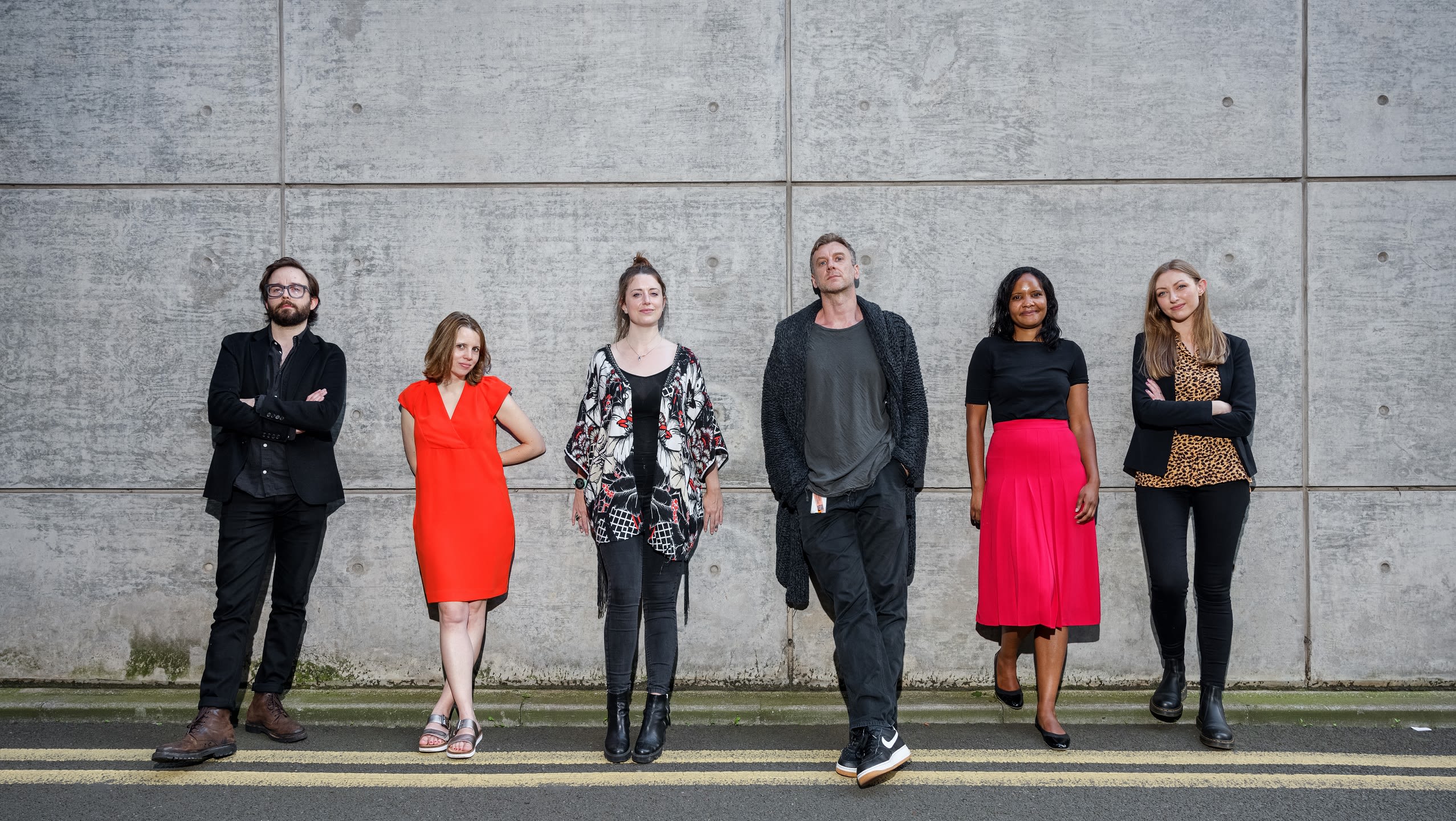
“I worked on a story documenting their experiences and one of the things I remember is that despite the difficulties, challenges and heartbreak there was camaraderie, moments of hope and joy. I am so grateful that they were so honest and open with me and that I was able to tell their stories publicly.”
Imperial academics played a key role in explaining COVID-19 to the public, in shaping government strategy and policy, and in rapidly researching solutions to the pandemic. What was it like to help them? Ryan O’Hare is Senior Media Officer for Medicine.
“I think only now are we able to reflect on how intense it was to work through the pandemic. Our researchers were among the leading expert voices – giving crucial insight and context at a time when we really didn’t know what we were facing.
“We would frequently be in meetings or calls with researchers discussing new findings, which would then be mentioned at the daily televised Government press briefings, or be all over the front pages the next day.
“As we move beyond the pandemic people will have a chance to reflect on their experiences, and how their actions impacted the situation and on the people around them. I know our team worked extremely hard and put in very long hours to support our researchers, to get the latest findings out there, and to help national and international media get the answers and expertise they needed.”
“It was difficult, it was exhausting, and at times it was hard to switch off or get much respite from COVID-19, but I feel immensely proud to have played a small part in it and to have worked with such dedicated people.”
From the release of the first Coronavirus report from the MRC Centre for Global Infectious Disease Analysis in January 2020, to the explosion in and then perpetual onslaught of phone calls , the mammoth task of scheduling media interviews and the pressure to tell the stories of Imperial staff with accuracy and on deadline, the Communications team at Imperial College London have been on an incredible journey through the pandemic. With such dedication to ensuring our researchers are acknowledged, it’s no surprise they’re receiving accolades of their own.
